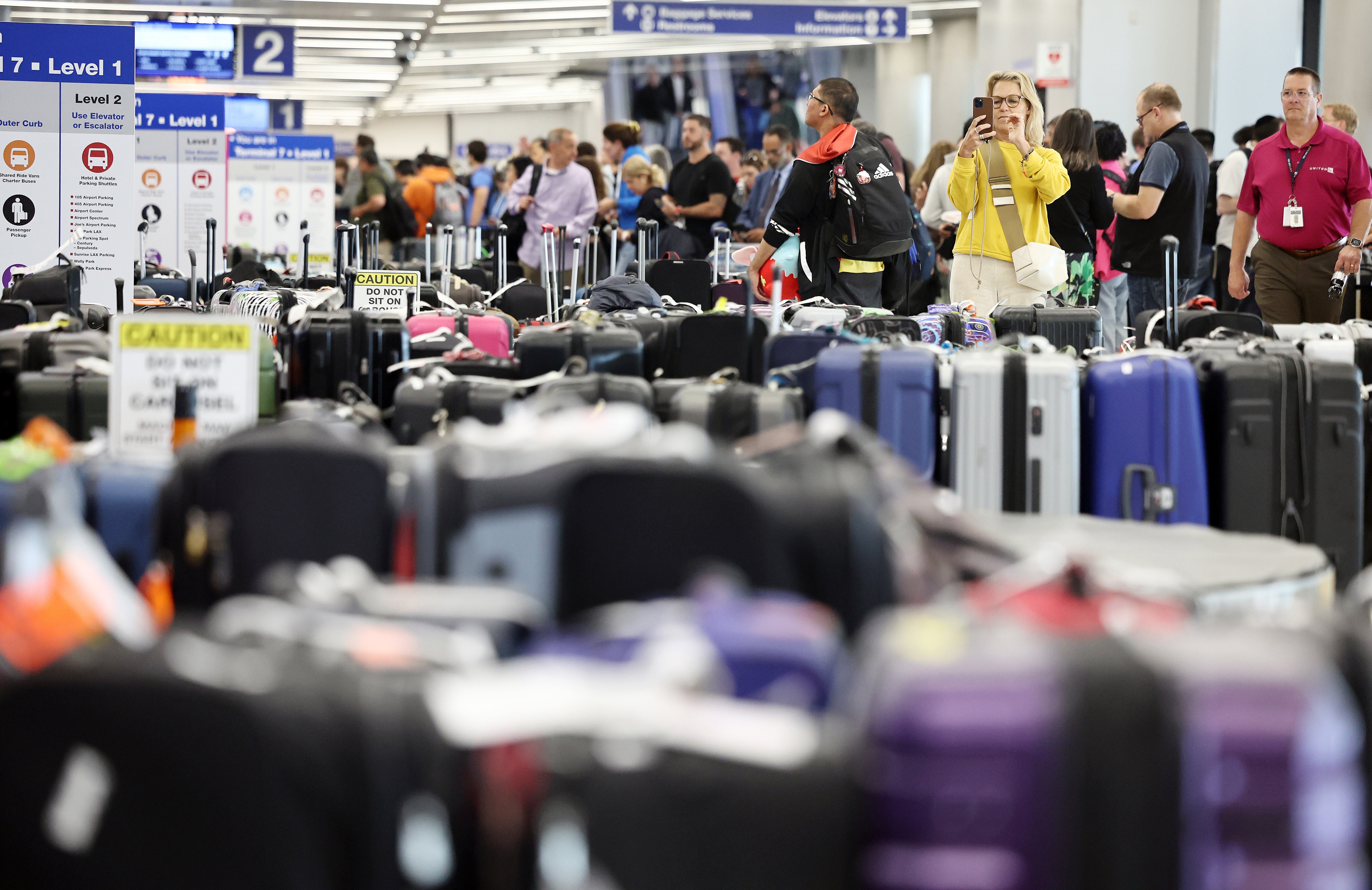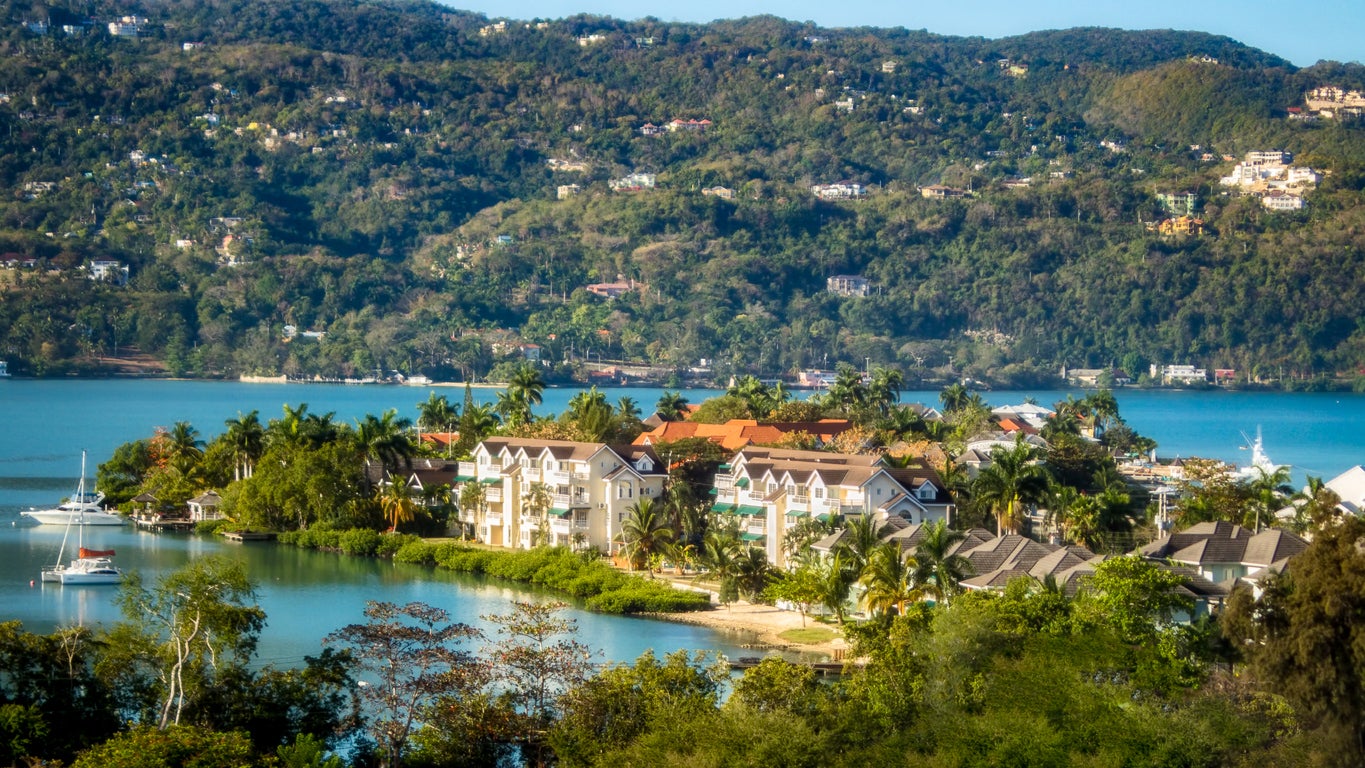Will the airline or insurance pay up for our lost luggage?
Simon Calder answers your questions on lost luggage, spare flight crews and airport refunds


Q Are we better off claiming for five days of lost luggage with the airline, or through our travel insurance?
Andy Ross
A My job enables me to travel far and wide, and I have an annual travel insurance policy but I cannot remember the last time I claimed for anything on it. The most valuable attribute of travel insurance is medical cover, and I have been lucky in not making any calls of that nature. For other aspects of travel, insurance is always the last resort after travel providers have stumped up for what they are legally obliged to cover. For example, if your flight within the UK and Europe, or on a British or European airline anywhere in the world, is cancelled then it is down to the carrier to provide accommodation, meals, an alternative flight and possibly even cash compensation.
The same applies to most events involving misrouted baggage (hardly any luggage is permanently lost while in the care of airlines). I am surprised to see that Citizens Advice says that rather than contacting the airline: “If you have travel insurance or home contents insurance that covers luggage, you’re likely to be better off making an insurance claim instead. You’ll probably get more money and find it easier to claim this way.”
I agree that airlines could make it easier to recoup the costs involved when your baggage goes astray. The main elements are usually the essentials you need: toiletries and some basic clothing. I trust you kept the receipts for purchases. The airline should meet all reasonable claims. A good travel insurance policy may offer some cover for baggage delay but most companies will ask you to contact the airline first – after all, it is their contractual duty. Travel insurers may then meet a claim that goes beyond “basic”, eg a new suit for business purposes.

Q There could be eight family members flying off to Jamaica in February. Is a flight upgrade from normal seats/fare worthwhile?
Kevin L
A A trip to the finest English-speaking island in the Caribbean in February sounds like a dream trip – and I can understand the desire to arrive in the best possible shape by upgrading to premium economy or even business class. But I don’t consider the very substantial cost involved worthwhile for a daytime flight, as all services from the UK to Kingston and Montego Bay are.
The tax burden alone is punitive. The new government needs all the help it can get with the public finances, and I am sure that the chancellor, Rachel Reeves, would welcome the extra £848 in air passenger duty (APD). That is the difference in tax liability for a flight to Jamaica compared with basic economy (the rates in February 2025 will be the same as now: £88 in economy, £194 in anything grander). Of course, the airline will also charge a substantial premium. Yet I am a big fan of daytime flights in economy class.
While jet lag will always be a problem on transatlantic trips, at least a flight that you board in the morning and which delivers you to your destination in the late afternoon or evening will steer your body clock in the right direction. What with all the inflight entertainment and meals, the journey will pass quickly enough. Travellers are generally in a much more positive mood when going on holiday than when coming back.
Returning home, which must be done overnight, is an entirely different mindset. You may think the extra space and greater likelihood to sleep is worth the additional cost (reckon on at least another £200 for premium economy, many hundreds more for business class). There is no APD when travelling inbound, so that makes a difference in cost. Personally, though, I would always prefer to put that money towards another trip – or to pay for great Jamaican experiences.

Q You wrote about the Supreme Court deciding that British Airways had to pay out compensation after a pilot fell ill and the flight was cancelled. But you seem not to agree that airlines should have spare crews in case pilots are sick or cabin crew go sick. Surely this should be factored into their planning when flights are scheduled?
Jack H
A This test case concerned compensation of £220 each for a couple whose flight from Milan to London was cancelled. The first officer fell ill shortly before departure. It was taken all the way to the Supreme Court for a definitive ruling on whether crew sickness counts as an “extraordinary circumstance” – exempting airlines from cancellation compensation claims.
The judges decided unanimously that if passengers are seriously disrupted due to crew sickness, they should get a cash payment of hundreds of pounds. They said: “Staff illness is commonplace for any business.” The implication of the ruling is clear: airlines are expected to have a pilot and a member of cabin crew waiting on standby at every destination they serve, in case one of the colleagues assigned to the flight goes sick. This is laughable in the context of aviation.
For example, I am writing from Pula in Croatia. EasyJet has four flights a week from here to London Gatwick. All airlines have standby cover at their base: pilots and cabin crew who can step in at the last minute if necessary. But the Supreme Court seems to think Britain’s biggest budget airline should have a captain and a senior cabin crew member sitting in the same Croatian cafe as me all summer long just in case a member of airline staff of their seniority or less should fall ill on the way over.
Alternatively, easyJet could take up a precious couple of seats on the plane to fly spare staff out and back. That would be necessary on every flight to a destination where easyJet has no fixed base. None of this will happen. Instead, airlines will continue to operate as they do now – but with the knowledge that crew sickness will trigger compensation claims costing tens of thousands of pounds. This is not an overall passenger benefit, because the increased costs will be reflected in higher fares.

Q I regularly read about passenger rights for flight disruption, but what happens if it is the airport that causes the problem? A colleague and his family were flying back from Basel in Switzerland last week, but the queues at security were so long that they and about 30 other passengers missed the flight. They ended up paying a lot more for an extremely early flight from Memmingen in Germany two days later. Can they claim the extra cost from anyone?
Margaret C
A Long queues for airport security are far from a uniquely British problem. Peak summer brings problems across Europe. Last summer at Stockholm airport, arriving 90 minutes before my flight, the line was so long that I only made the plane by asking other passengers if I could jump the queue – which is an absolute last resort, because it further delays others.
Of course airlines don’t like leaving passengers behind. But the low-cost business model requires strict punctuality, especially in a summer with serious air-traffic control constraints. So flights will leave even though the crew know that some frustrated passengers are only metres away from the departure gate.
The stress, delay and expense your colleague and his family incurred is much more substantial than, say, a three-hour delay caused by a technical issue. Unfortunately European air passengers’ rights rules are so badly drafted that they will get nothing after their miserable experience – compared with three-hours-late passengers, who earn hundreds of euros in cash compensation together with free refreshments while they wait.
These EU rules were drafted 20 years ago, and it seems absurd that have not been modified to include the airport experience; they cover purely the behaviour of the airlines. The speed of security clearance is entirely within the airport’s control. Were air passenger rights constructed to allow travellers to get some kind of restitution from the airport when they miss flights due to an absurdly long wait, the problem might swiftly melt away.
There is an opportunity for the new UK government to amend the whole messy legislation, which is currently just a copy-and-paste of Europe’s 261 rules. I will include this in my hopefully helpful recommendations to the newly announced aviation minister, Mike Kane.
Email your question to s@hols.tv or tweet @SimonCalder






Join our commenting forum
Join thought-provoking conversations, follow other Independent readers and see their replies
Comments